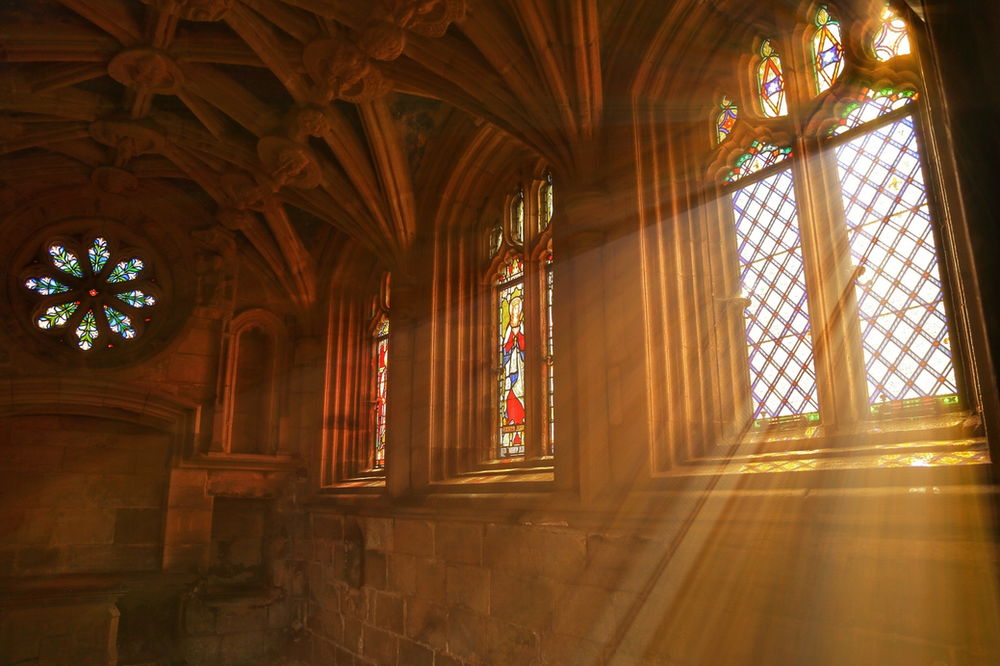The Father said he was looking for true worshippers who worship in spirit and truth. He is not looking for fake ones but real ones. God desires authentic worship. A true worshipper is one who is filled with thankfulness, hidden in the shadow of Jesus’ wings. A true worshipper willfully conforms to the mold of God’s image, both in spirit and in truth.
“God is spirit, and his worshipers must worship in the Spirit and in truth.”—John 4:24 (NIV)
Let me break this down.
In Spirit
God is a spirit; so, we must come to him in spirit. We must worship by the power of the Holy Spirit and with a spirit of sincere desire and passion. And we must not forget that ever since the Garden of Eden, the spirit of man has been cut off from the Father. We would need a new breath of life breathed into the hollowness of our spirit (John 3:5). And it’s through our response of humble submission to Jesus’ love that the Spirit of God brings us back to life. He removes our heart of stone and replaces it with a heart of flesh (Ezekiel 36:26). He removes our dead spirit and replaces it with his living Spirit.
The Holy Spirit ignites a fire within us, causing our hearts to desire him above everything else. He opens our blind eyes and awakens true worship within us that is full of passion and desire to obey him. God doesn’t want plastic versions of our worship; he wants the real thing. He doesn’t desire external sacrifices and offerings; he desires a broken and contrite heart (Psalm 51:17). God doesn’t want your hands until he has your heart. He is not impressed by consistent church attendance, CCM radio presets, or the amount of money you put into the offering plate. God wants your undying devotion and desire. After he has your heart, these things might be pleasant to him but not before.
“These people honor me with their lips, but their hearts are far from me.”—Matthew 15:8 (NIV)
To worship him in spirit means that we worship him through the power of the Holy Spirit with all of our inner-being. When we repent of our sins, the Holy Spirit moves in, and the dead spirit of our father Adam moves out. The Holy Spirit becomes our spirit, and he awakens our heart’s desire to worship the Father.
In Truth
A true worshipper also worships in truth. There are a couple of different ways to interpret or apply “truth” from this verse, and I think they are both correct and work together.
The first and most obvious truth is Jesus himself. Jesus said, “I am the way, the TRUTH, and the life.” Jesus is the truth; so, all who come to the Father must come through him—his blood, his work, and his authority (John 14:6). He is the only exit from sin’s prison cell and the only entrance into the kingdom of God. Jesus is the ark that rides the flood of God’s wrath. We must be in him to come to the Father.
So, to worship the Father, we must worship in truth, which is to say, we must worship in Jesus. We must be hidden in him. Jesus is our passage to eternal life. He is the truth and the ultimate authority. Whatever he says to be true is true. Jesus has established and preserved the Scriptures to be this authority for us. So, to worship in truth, we must worship Jesus by the wisdom of his Word.
The second understanding of “truth” would be to say, “in actuality.” It’s the physical manifestation of worship—the “becoming.” In other words, it is putting your money where your mouth is—the marriage of belief and action—the agreement of the physical with the spiritual. If I were to say that I believed one thing but acted in a way that was inconsistent with that belief, I would either be considered a hypocrite or a fool. If a belief does not inform the way I live, then it is not a genuine belief.
Although some beliefs may have little to no consequence or future implication for the way we live our life, belief in Jesus is not this way. If worship is valuing one thing above everything else, then true worship of Jesus would mean that we give him our thoughts, attention, desires, and obedience. Saying we worship Jesus without actually worshiping him is not true worship. That would be like saying we were in the boat when in reality we were still on the beach.
What, then, does the physical action of true worship look like?
In many churches, worship is described as a Sunday gathering or an act of singing. But based on the explanation above, even singing isn’t true worship unless it is first coming out of a spirit of authenticity. True worship is responding to what God has done for us in the way that he has prescribed. The physical response of worship to the revelation of Jesus is to mirror him. It is to fix our gaze and affection on him and allow the essence of his person to transform us. It is to obey his truth with humble submission by becoming more like him.
One that worships in spirit and truth is one who worships with a whole heart by the power of the Holy Spirit through obedience to Jesus’ commands that are found in his Word. A true worshipper is one who, being hidden in Christ, gladly and willfully conforms to his image. It is cause and effect. We behold, and we become.
In John 21, after Jesus’ resurrection, he appeared to his disciples several times. The third time he appeared to them, after they had just finished eating a meal together, Jesus said to his disciple Simon Peter, “Simon, do you love me?” Simon replied, “Yes, Lord, you know that I love you.” Jesus said, “Feed my lambs.” Then Jesus repeated the same question again, “Simon, do you love me?” Simon must have been slightly confused, but he replied, “Yes, Lord, you know I love you.” Jesus said, “Then take care of my sheep.” A third time, Jesus asked Simon, “Do you love me?” Simon Peter was hurt that Jesus would ask him the same question a third time. Though Jesus undoubtedly was giving Simon a chance to redeem himself after having denied Jesus three times at the cross, there was something else happening here.
Jesus told his disciple Peter that if he genuinely loved him, he would feed his sheep. In other words, if Peter loved Jesus, Peter would do the very thing that Jesus did. He would become passionate about the same things that Jesus was passionate about. If Peter loved Jesus, he would care for the people Jesus cared for. He would make necessary sacrifices to love and watch over those who identified with Jesus. A love for Jesus is not passive. It actively reciprocates.
This is consistent with what Jesus told Phillip in John 14:15. He told Phillip that the way to show love to God is by loving his neighbor. The beholding of Christ’s love ultimately leads to becoming a reciprocator of that love towards our neighbor. True worship is an expression of love because it is produced by love. As we see the way Jesus laid down his life for us, we, too, can lay down our lives in response. Jesus demonstrated his love for us by taking up his cross, and we take up our cross to follow Jesus by demonstrating his love towards others.
Though true worship may produce loud singing in church with hands lifted in surrender to God, we must not miss that the worship Jesus desires is expressed through loving our neighbor from the heart. In my years of vocational worship ministry, I’ve seen what it looks like to love the idea of worship without really worshiping. There are those who worship a form of worship itself. They love the music and the experience—the raw emotion and the energy. They love to go wild during a worship service, but after the service, they go to a restaurant and yell at their waiter for messing up their order.
Don’t get me wrong. I love and value music as much as anybody—maybe more. But as a worship pastor, I would be doing a disservice to cheapen the true worship that God desires. Jesus didn’t say, “If you love me, sing loudly.” He said, “If you love me, take care of my sheep.” If we love Jesus—if we truly worship him—we will love. Passion for a worship experience is not a substitute for true worship.
True worship happens as a response to the revelation of God’s goodness by turning away from what kills us and running toward what saves us. It turns from pride and runs to humility. It turns from selfishness and runs towards selflessness. Worship has no off switch. Either we are worshiping Jesus or something else. And it’s in the turning to Jesus, both in spirit and in truth, that God’s living water breaks through heaven’s flood gates and pours into our souls. It’s in turning to Jesus that true worship begins. This is where eternal life starts. It’s where freedom is found (2 Corinthians 3:17). This is the beginning of fulfilling your purpose. Stepping into the waters of baptism is the beginning of stepping into his mold. This journey may start with a simple prayer, but it doesn’t end there. It always leads to true worship.
Taken from Chapter 4 of the book, “You Are What You Worship“

